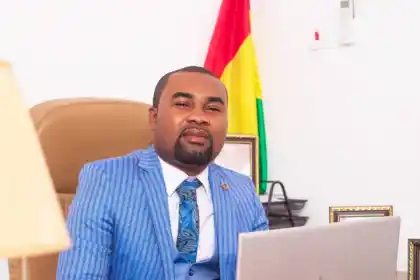The New Patriotic Party (NPP) in Ghana faces a critical juncture as it navigates the path toward the 2026 presidential primary. Dr. Razak Kojo Opoku, founder of the UP Tradition Institute, has issued a timely and crucial warning against the divisive nature of tribal and religious campaigning, reflecting on the potentially damaging legacy of such tactics employed during the 2023 primaries. Dr. Opoku’s cautionary message underscores the importance of unity and inclusivity as the party prepares for its next leadership selection process, emphasizing that the NPP’s strength resides in its collective identity, not in fragmented sectional interests.
The 2023 NPP primaries witnessed the emergence of divisive slogans that exploited ethnic and religious sentiments. Phrases such as “It is time for a Non-Akan to lead NPP,” “It is time for Dombo to lead NPP,” “Enough of Akan Presidential Candidates leading NPP,” and “NPP must produce Ghana’s first Muslim President” became prevalent. These slogans, according to Dr. Opoku, created an uneven playing field, disadvantaging Akan candidates and inadvertently favoring Dr. Mahamudu Bawumia, who ultimately secured the party’s flagbearer position. This manipulation of identity politics, often disguised as appeals for representation, risked undermining the party’s core principles and potentially alienating significant segments of its support base.
Dr. Opoku argues that the very individuals who benefited from these divisive narratives remained silent on the issue of tribalism and religious exploitation, precisely because these tactics served their immediate political goals. This silence, he implies, speaks volumes about the cynical manipulation of identity for political gain. The long-term repercussions of such strategies, however, could be severe, potentially fracturing the party along ethnic and religious lines and weakening its ability to present a united front in future elections. The pursuit of power through divisive means, even if successful in the short term, carries the risk of long-term damage to the party’s cohesion and electoral prospects.
Looking ahead to the 2026 primaries, Dr. Opoku’s message serves as a call for a fundamental shift in campaign strategies. He advocates for a return to campaigns grounded in integrity and fairness, where candidates are assessed based on their merits, vision, and leadership qualities rather than their ethnic or religious background. He stresses that the NPP does not belong to any single individual or group, but is a collective entity whose success hinges on the contributions and support of all its members. This emphasis on collective ownership underscores the importance of fostering an inclusive environment where all members feel valued and represented, regardless of their background.
The pursuit of unity and inclusivity is not merely a moral imperative; it is also a pragmatic necessity for the NPP’s future success. A party fractured by internal divisions, fueled by tribalism and religious differences, will struggle to effectively mobilize its base and present a cohesive message to the electorate. The focus on sectional interests, rather than the common good, weakens the party’s ability to address national issues and effectively govern. Dr. Opoku’s call for unity, therefore, is not just about preserving the integrity of the party but also about ensuring its long-term viability and effectiveness in the Ghanaian political landscape.
In conclusion, Dr. Opoku’s warning serves as a timely reminder of the dangers of identity politics and the importance of maintaining unity and inclusivity within the NPP. The 2023 primaries, marred by divisive rhetoric, should serve as a cautionary tale for the party as it prepares for the 2026 leadership contest. The future success of the NPP hinges on its ability to learn from past mistakes and embrace a more inclusive and principled approach to campaigning, one that prioritizes the party’s collective strength over narrow sectional interests. The emphasis on merit, integrity, and fairness, as advocated by Dr. Opoku, is crucial not only for the internal health of the NPP but also for its ability to effectively represent the interests of all Ghanaians and contribute to the nation’s democratic development.














